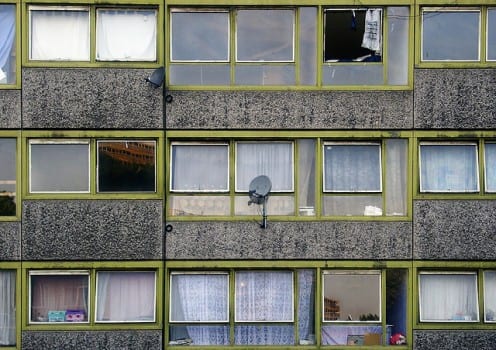Class and communication
By Daniel Miller, on 1 June 2013

Photo by cityofstrangers (Creative Commons)
I don’t really want to study social class, every researcher on English society seems obsessed with it, as are the general public. Consider the recent reaction to the BBC Great British Class Survey or books such as Watching the English. But after just two months fieldwork in The Groves I am immersed in a whole slew of such differentiations. How far do the people of High Grove look down on those of Low Grove? Is everyone now using the term ‘social housing’ as a proxy for not just lower class but all sorts of problematic behaviour they associate with that class? Can I ignore stories of parent’s weeping when their child fails to get into their chosen school? I would like to have focused on something more original, but the integrity of ethnography starts with ignoring what you would like your study to be about, and going with your evidence.
When I do research on class I find I fluctuate in my perspective. Sometimes I see through welfare glasses where class looks like differential life chances, and the sensibility of fairness. I remain incensed by the degree that it is still the mere luck of being born to lower income families and lower educational expectations that largely determines life’s opportunities and the likelihood of suffering and deprivation. This remains true of the UK where inequalities still mainly stem from chance not ability. But I also see class with other glasses that pick up all sorts of nuances and playfulness of style as social differences which make up a fascinating tapestry of distinctions in clothing music and style, without necessarily meaning a whole lot in terms of objective life chances.
I may have inherited this duality from the French anthropologist/sociologist Pierre Bourdieu. Much of his research concerned poverty and the relationship between education and subsequent social mobility. Others, such as his book Distinction are associated with issues of taste. The recent BBC Great British Class Survey is a pop version of the work of Mike Savage which is in turn a pop (or updated) version of Bourdieu. But Bourdieu was less divided since with the legacy of Marxist writing he still saw taste and life chances as two sides of the same coin, which guaranteed the status of class as an object of study.
How will class relate to the study of digital communications? Differential digital literacy may still reflect class as welfare. Other differences are more complex. Some quite hip young people are into Instagram used for all sorts of ‘edgy’ photo effects. But others with a serious interest in photography see this as an inauthentic cheat that devalues photography as art. Maybe this is typical of the democratization of skill? There are early indications. There seems to be a stronger digital presence generally including higher usage of Instagram in High Grove. Does this run parallel with evidence its high street has the delicatessens and art galleries, while Low Grove has few such class markers?
I am suspicious of correlations as evidence of cause. My work with the hospice suggests that it was often high status families who were most reserved and cut off from social communications and ended up suffering social isolation as a result. So higher status may not translate as advantage. Class is cross-cut by gender and age, and Facebook seems to be migrating from younger to older. Also social differentiation fragments into many different competitions. As Bourdieu once put it there is a struggle for hierarchy between the different hierarchies. So things will be complex, but that is the nature of ethnography, and if don’t manage to tease out these tangled threads, who will. Fortunately we have another two years to try and make sense of such things.
 Close
Close




